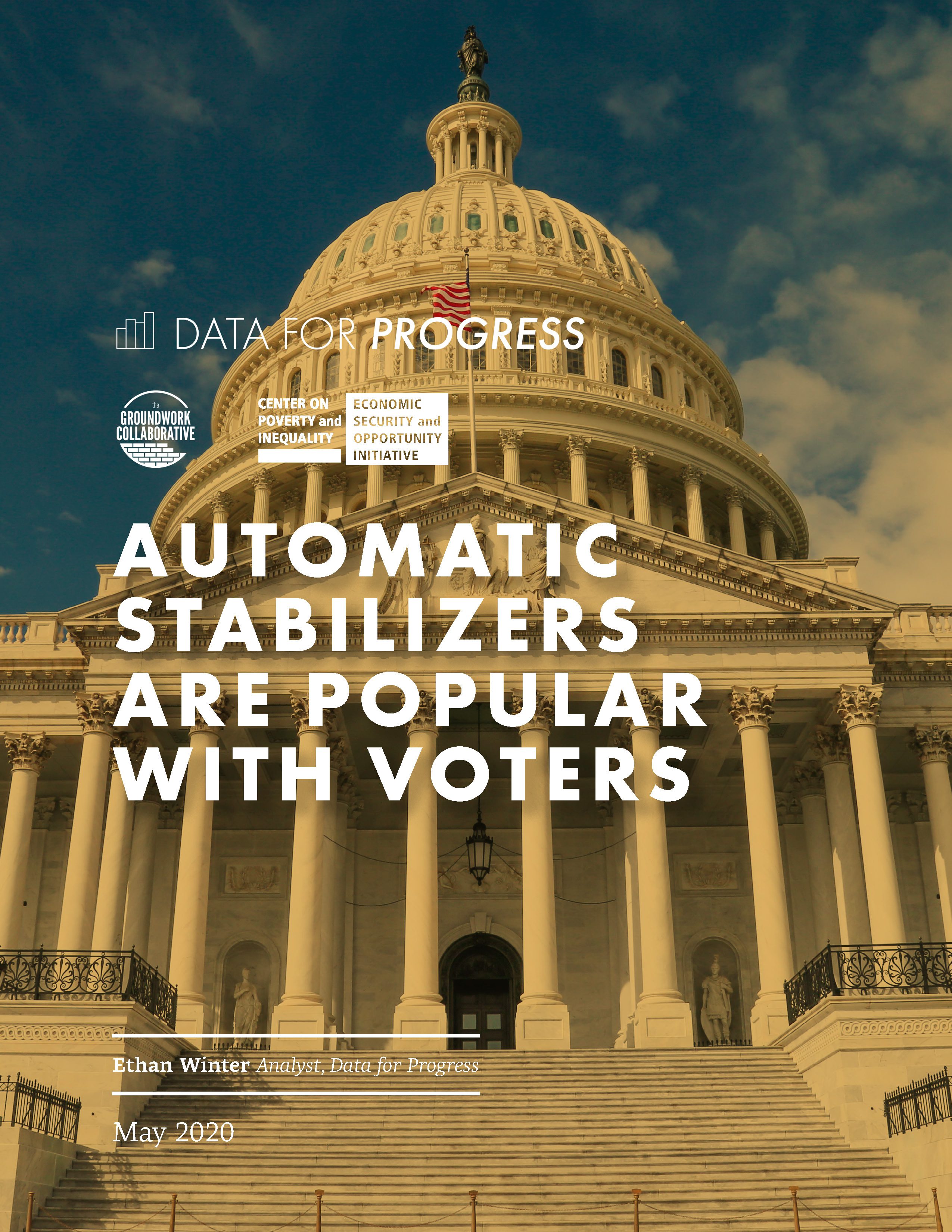Automatic stabilizers—policies that make public spending responsive to economic conditions—boost our economy by reducing income losses and supporting consumer spending. This memo, published jointly with Data for Progress and the Groundwork Collaborative, analyzes new polling data on automatic stabilizers. By a two-to-one margin, voters support Congress implementing policies to automatically increase social spending during periods of increased unemployment.
Executive Summary
By a two-to-one margin, voters support Congress implementing policies to automatically increase social spending when there is an increase in unemployment.
Sixty-three percent of voters strongly prefer assisting those in need even if it increases government debt.
Voters are supportive of the unemployment insurance system, supporting it by a 61-percentage-point margin.
Since the coronavirus pandemic arrived in the United States, the American economy has tumbled toward cataclysm. Initially, hoping to slow this fall, the Federal Reserve provided $500 billion to temporarily patch the repo funding markets. Additional action soon proved necessary, though, and it arrived in the form of the CARES Act, the roughly $2 trillion relief measure that, among other things, “supercharge[d] unemployment.”

